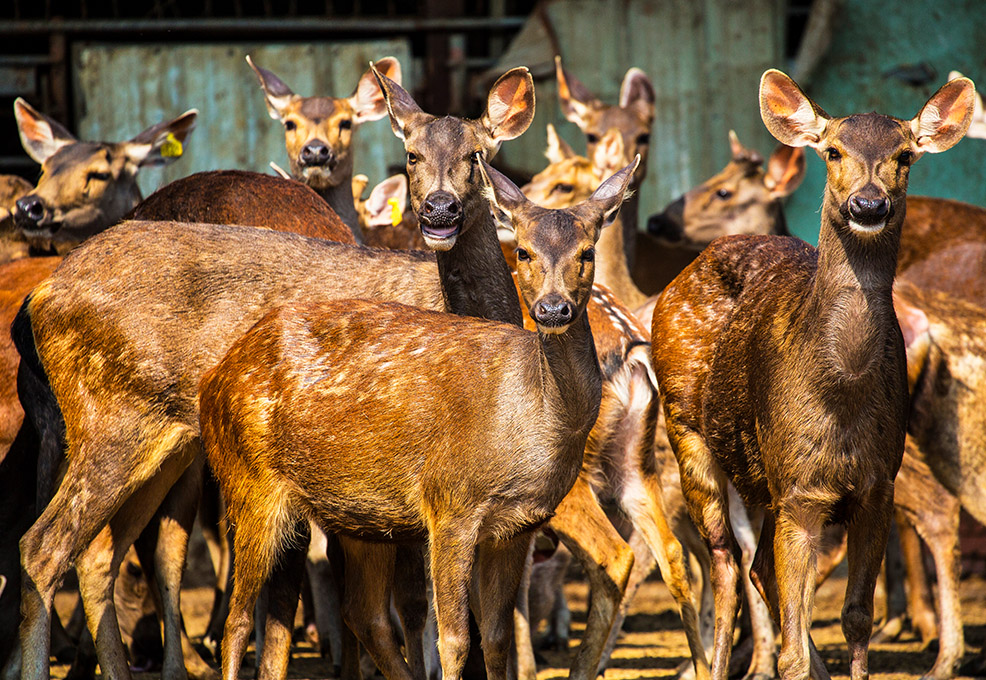The COVID-19 Pandemic Brings 12 Possible Changes to the World, Which May Well Reshape the Economy and Society

Author(s)
I-Fang SunBiography
Prof. I Fang Sun received his Ph.D. from the University of California, Berkeley in 1994. He is now a professor at the Department of Natural Resources and Environmental Studies at the National Dong Hwa University. Prof. Sun’s research interests focus on understanding mechanisms that facilitate species coexistence in tropical rain forests. He has worked in tropical and subtropical forests for more than 20 years in East Asia and South East Asia, and have involved in planning, establishing and maintaining several Forest Dynamics Plots (FDP) in Taiwan, China and SE Asia.
Academy/University/Organization
National Dong Hwa University-
TAGS
-
Share this article
You are free to share this article under the Attribution 4.0 International license
- HUMANITIES & SOCIAL SCIENCES
- Text & Image
- July 20,2020
In January 2020, the Center for Interdisciplinary Research on Ecology and Sustainability (CIRES) was launched, hosted by the College of Environmental Studies, National Dong Hwa University, Hualien. Our mission at CIRES is to advance research on the resilience of socio-ecological systems in the face of global change, facilitating better governance outcomes that take into account environmental, social and economic concerns. To do so, we are 1) developing a regional hub for scientific exchange and collaborative research in conservation ecology and sustainability; 2) cultivating an interdisciplinary approach for solving complex socio-ecological problems; and 3) encouraging graduate education and promoting public interest in our work. CIRES plans to host four international working groups a year once the travel restrictions have eased, with an emphasis on analyzing and synthesizing long-term ecological datasets from tropical and subtropical Asia. Our existing projects are investigating a wide range of topics, including carbon, water and energy fluxes at Danongdafu forest park; ecosystem and community monitoring in Lintienshan and Yuli forest compartments; and socio-ecological system resilience in the Hualien valley watershed. We consider the latter our flagship project, for which we will develop a model for the potential feedback loops between renewable energy, agricultural production and biodiversity conservation. We encourage those who share our interests to explore our website at cires-taiwan.org, and contact us through the links provided therein.
Asia has undergone rapid changes over the last half century, with its economies and populations becoming increasingly dominant forces in global politics and development. Such changes bring new socio-ecological challenges that require robust scientific understanding for informed policy making. At the College of Environmental Studies, National Dong Hwa University, we recently launched the Center for Interdisciplinary Research on Ecology and Sustainability (CIRES), a multi-disciplinary group aiming to further such understanding. CIRES is the first research center of its kind in Asia, modelled on organizations such as the National Center for Ecological Analysis and Synthesis (NCEAS) in California and the German Centre for Integrative Biodiversity Research (iDiv). Our mission is to advance research on the resilience of socio-ecological systems in the face of global change, facilitating better governance outcomes that take into account environmental, social and economic concerns.
The complexity of environmental issues often requires a depth and breadth of expertise that is beyond a single institution. Scientists with multiple research backgrounds and perspectives need to be connected to solve the most challenging socio-ecological problems we face today. Taiwan is in the perfect location to serve as a gateway to regional economic powerhouses and biodiversity hotspots, and thus to bring together scientists from around Asia and the rest of the world for collaboration on some of the most pressing issues in conservation ecology and sustainability. We plan to host four international working groups a year once the travel restrictions have eased, with emphasis on analyzing and synthesizing long-term ecological datasets from tropical and subtropical Asia. We welcome novel proposals or datasets from potential collaborators, or participation in our projects that have already begun.
Current projects at CIRES investigate a wide range of topics, including carbon, water and energy fluxes at Danongdafu forest park; ecosystem and community monitoring in Lintienshan and Yuli forest compartments; and socio-ecological system resilience in the Hualien valley watershed. We consider the latter our flagship project, for which we will develop a model for potential feedback loops between renewable energy, agricultural production and biodiversity conservation. These factors can have significant effects on the livelihoods of local communities, and can contribute to national food and energy security. At present, local food supplies in Taiwan only meet 30% of total food consumption, while energy self-sufficiency is merely at 3%. Such low percentages undoubtedly pose a threat to societal stability and need to be improved, but it is imperative that future developments consider global change, ecosystem health and human well-being.
Public awareness, interest and support are critical to progress in biodiversity conservation and sustainability. At CIRES we encourage both Taiwanese and international graduate students to become involved in our projects, and will offer training in the data analysis and synthesis skills needed for effective socio-ecological research. These are provided in both English- and Chinese-language courses in the Masters and PhD programs at the College of Environmental Studies, National Dong Hwa University. Besides, we also plan to facilitate internships and volunteering for those who hope to gain more experience and awareness of environmental issues. Finally, we will be holding open events to communicate our work and its implications to those not directly involved in academia and policy making. In this way, we hope to form a connection between the international, national and local collaborators and stakeholders in our work. We encourage those who share our interests to explore our website at cires-taiwan.org, and to contact us through the links provided therein.
STAY CONNECTED. SUBSCRIBE TO OUR NEWSLETTER.
Add your information below to receive daily updates.




